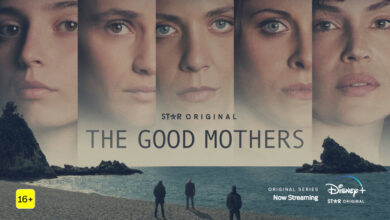Kaos Series Review: A Great Series Full of Irony, Creativity and Rhythm
The new Kaos series, written by Charlie Covell, creator of The End of the F***ing World, arrives on Netflix on August 29th. The series offers audiences a story inspired by some of the great Greek myths, brought to the present day and rewritten and intertwined in a truly surprising (and convincing) way. Directed by Georgi Banks-Davies and Runyararo Mapfumo, the series stars Jeff Goldblum as Zeus, Janet McTeer as Hera, and Cliff Curtis as Poseidon. Killian Scott plays Orpheus, Billie Piper as Cassandra, Nabhaan Rizwan as Dionysus, David Thewlis as Hades, Aurora Perrineau as Riddy (Eurydice) and Leila Farzad as Ari (Ariadne). Greek mythology has a vast and profound repertoire of stories and legends that can be interpreted from many perspectives. A unique and singular vision of these ancient myths converted, in some cases, into works of art by renowned painters and sculptors. A new original series seeks to give a contemporary approach to this series of fairy tales, representing figures such as Zeus, Hera, Poseidon, or Hades as rulers who receive requests from their followers and subjects.
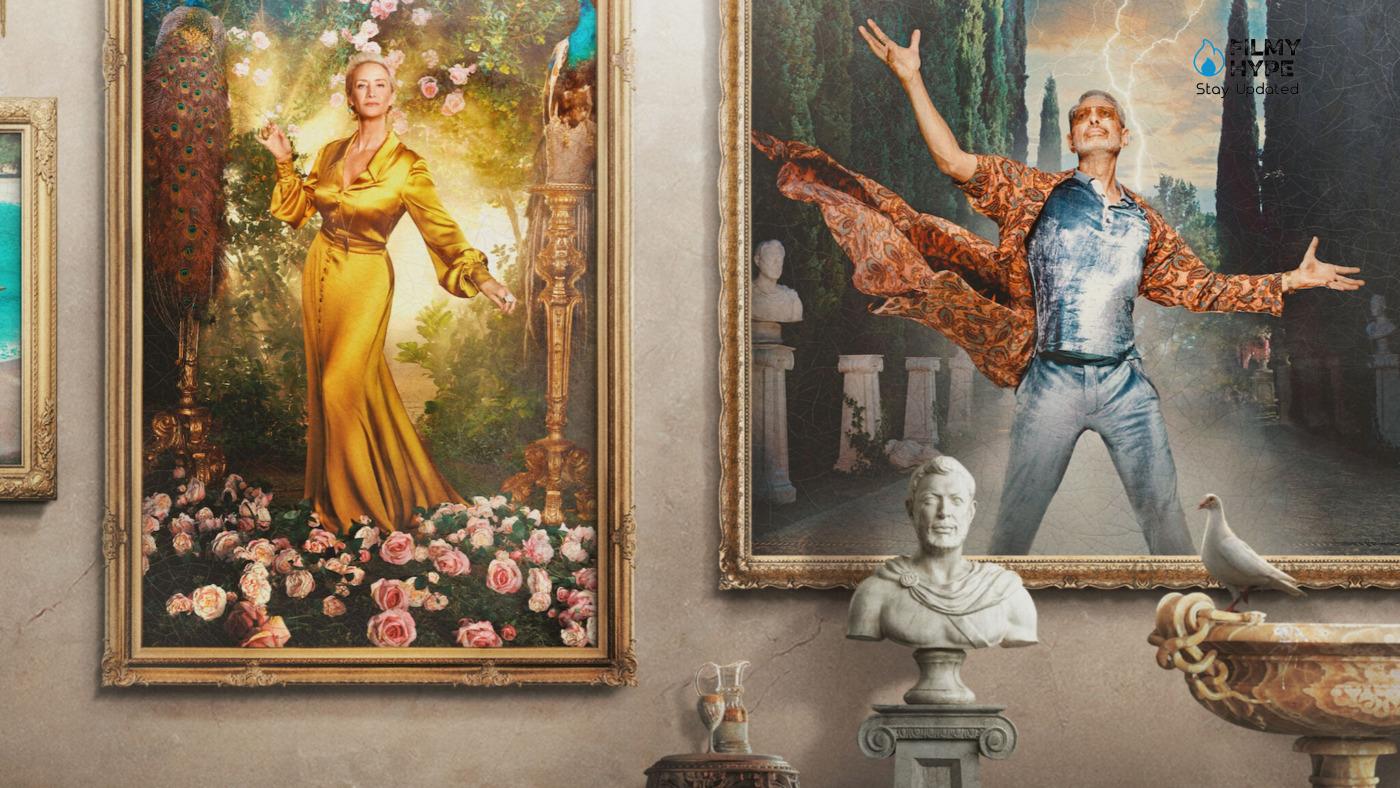
Kaos Series Review: The Story Plot
The showrunner of Kaos introduces us to the family of Greek gods par excellence, at their maximum level of power, whose veneration by humans remains intact, except for those few skeptics of the Trojan house, full of reasons to hate those they consider their enemies, absolutely absent from the suffering of their servants. It is from this small doubt that the series begins, from this Zeus who, despite knowing he is omnipotent and infallible, begins to feel the weight of uncertainty, that is, of something that escapes his omniscience. From there to absolute anarchy, you can imagine the rest: the king of the gods of Olympus thinks he has abandoned his supremacist personality and, despite having sworn not to be like his father Chronos, his existential sadness returns to being tyrannical.
A seemingly inexhaustible source of inspiration for pop culture, Greek mythology revolutionized animation techniques with Wrath of the Titans, became a teenage journey with Percy Jackson, and over the years has gone from popular to lugubrious. It is perhaps precisely this familiarity that allows Kaos to reinterpret mythology in such a saccharine and cartoonish way: in the world idealized by Charlie Covell, humanity still believes in the Greek gods and praises them in the same way as the Christian, Islamic, or Hindu faith. Temples and statues were built in the great cities in the name of Zeus, Hera, and Poseidon, and the belief in divine prophecies and punishments dictated indoctrination. And, as the ancient Greeks tell us in their myths, these gods walk the earth as humans to enjoy their superiority in the most banal way possible.
Kaos Series Review and Analysis
Netflix sweetens our return from summer vacation with a great series, inspired by some of the most famous Greek myths, updated, reread, remixed, and rewritten to bring out eight episodes that keep the audience glued to the screen from the first minute and do not let go until the end. We immediately find ourselves in the presence of none other than the king of the gods, Zeus himself, played by an amazing Jeff Goldbum. Capricious, corrupt, tyrannical, superstitious, and cruel: he is the one who rules over the gods of Olympus, the humans of the earth, and the souls of Hades. He does so in an arbitrary, haughty, dictatorial way.
This Zeus is the incarnation of power in its worst expression, and it is precisely that of power the central theme of this journey among major and minor gods, rebellious humans, deceased souls, mythological monsters, legendary warriors, fearful rulers, prophecies, intrigues, and betrayals. A succession of characters, stories, events, and plot twists that unfold in eight episodes filled not only with references to many different Greek myths but also with intelligent irreverence: black humor is the key that makes Kaos a series not to be missed. Excellent writing, characters recounted for millennia but presented in a contemporary and completely original version, and a perfectly calibrated cast: at the end of the eighth episode, you will be eager to have more.
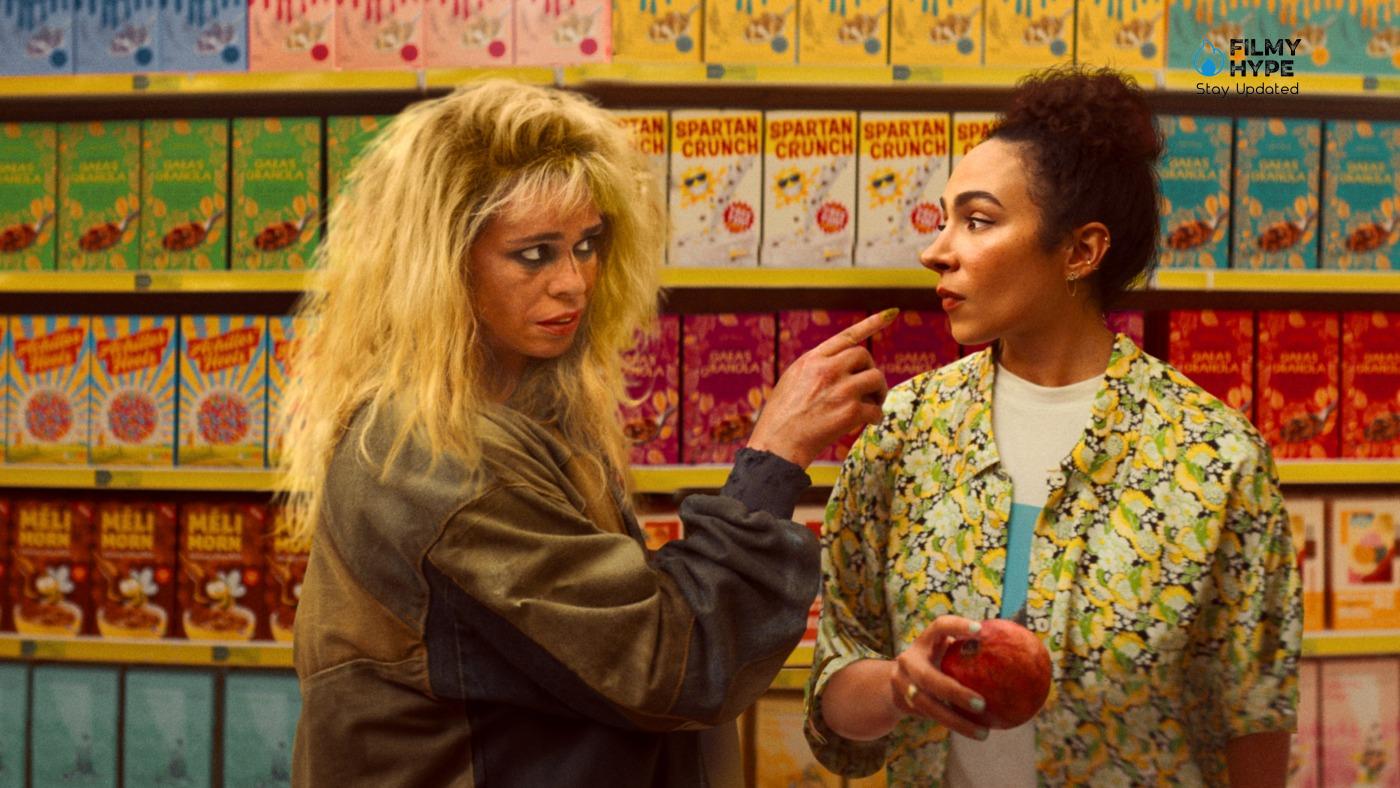
Zeus has long been considered the king of the gods. Until he wakes up one day with a wrinkle on his forehead. He becomes neurotic and takes a dangerous path paved with paranoia, convincing himself that this is the beginning of his downfall, of which he now sees the signs everywhere. Hades, king of the underworld and once Zeus‘s trustworthy brother is beginning to lose control of his dark kingdom. The dead are crowded together for redistribution and discontent is growing. Queen of the gods Hera (Janet McTeer) rules the Earth and Zeus in her way, but her power and freedom are threatened by Zeus‘s growing paranoia, forcing her to take action, while Zeus‘s wayward son Dionysus (Nabhaan Rizwan) has lost all restraint and is on a collision course with his father.
While retaining the aura of mythical entities, the gods of Chaos are ridiculous versions of themselves. Zeus (Jeff Goldblum) sports a tracksuit embroidered with lightning bolts; Poseidon (Cliff Curtis) parades in a colorful swimsuit on his yacht in the middle of the Mediterranean, almost always accompanied by Zeus‘ wife, Hera (Janet McTeer), a divine version of one of the protagonists of Desperate Housewives. What remains are their inflated egos and internal power struggles that, as the title of the series suggests, could lead to total chaos in the world. This association between divinity and social and economic status is not new in our celebrity culture, and several works have addressed the subject; in Kaos‘s Olympus, what matters is to maintain or gain this status, whose symbols are adapted to amplify the social gap that differentiates us.
Thus, Zeus‘s splendid palace on Mount Olympus is a palace straight out of Hollywood, while the Underworld is represented as a Kafkaesque nightmare of expressionless officials. Hades (David Thewlis) takes off his robes as emperor of the underworld and appears almost like the production manager of a factory that is about to implode. Covell demonstrates a complex mastery of Greek mythology and a deft hand in adapting those stories to our times, making it easy for viewers familiar with the myths or not to appreciate this black comedy-drenched drama starring a superb Jeff Goldblum, who brings to life an unhinged Zeus amid a personal crisis: Olympus is coming to an end and the father of all gods must make difficult decisions to save his throne and his position.

If the irreverence of its entities is the great charm of Kaos, the series loses strength when it moves away from its main narrative. Some choices hinder the development of certain characters, who end up being neglected and left without a narrative function for almost half the season. However, there is a narrative thread that unites them all, which always travels reflecting on the meaning of life: what does it mean to be human? Without fear of revealing spoilers, we will say that the characters, both gods and men, discuss the origin and destiny of each person. Because in the end they are all men, with more or less power, but they all have a written birth and death.
And it is here that the most sibylline protagonist appears: the prophecy. All this mess arises from the importance that one of the sensationally interpreted omens of the Moirai seems to have: a line appears, order fades, the family falls and chaos reigns. That is this line that appears as a clear reference to the thread that creates and destroys, can or cannot, depending on beliefs (as the Parcae pray), shake order, and make chaos prevail. How? Nothing can change if the contaminated relationship between gods and men does not change if forces are not equalized, and if nature is not revealed as it is. It is always about men, and Kaos makes this clear, in a direct and also metaphorical sense: all in search of the truth behind the shattered myth that anarchy brings with it.
The first aspect that strikes you about the series is the excellent writing that lays the foundations of the narration, which becomes fluid, compelling, and captivating. Both for fans of Greek myths and for those who have vague memories of what they studied in school. There is no doubt about the appeal that a story like this can have even today. After all, these are stories defined as “timeless”, not by chance. The series is created by Charlie Covell, who had already amazed everyone with the irreverent The End of the F***ing World on the platform, based on the graphic novel of the same name. This time the story is all his own work and shows his skill in modernizing and updating from the big to the small details of the history of Ancient Greece, divided between gods and men – therefore a polytheistic society, which also winks at the one we know well from Game of Thrones.
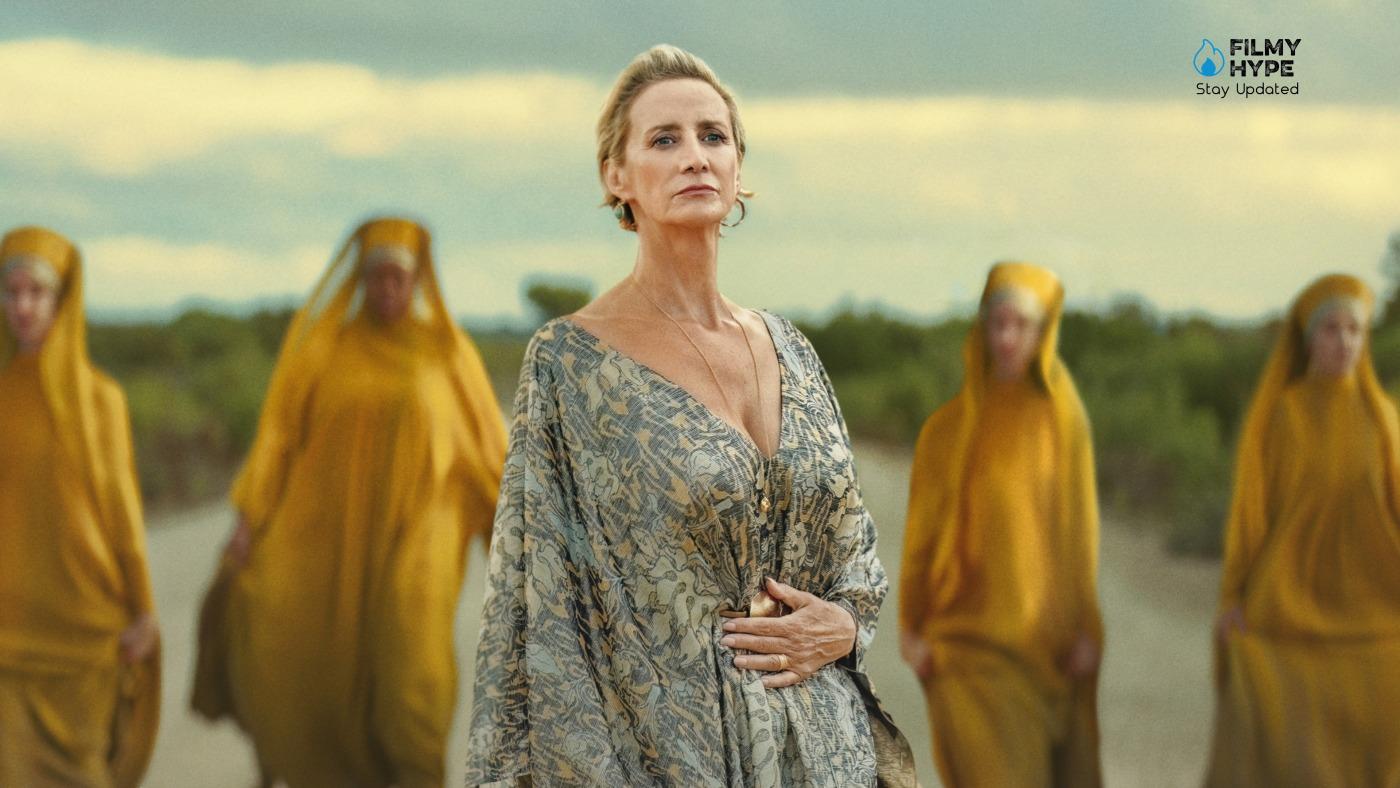
It, therefore, seems perfectly credible how Orpheus became a rock star, that Eurydice ended up in a sort of relationship of emotional dependence, and that the latter’s mother no longer speaks to her, and this causes her deep pain. Or again we smile for Dionysus and his life of lust, who would like to be considered something more by his father Zeus, and not be frowned upon by his mother Hera, who must control the temperament and escapades of her husband (and brother). It’s not just the many easter eggs scattered throughout the presentation of the story and the successful characterization of the characters – Billie Piper’s Cassandra is something spectacular, as is the constant reference to the “dirty Trojans” – but also their costumes and their makeup, the direction and photography of the series. Nothing is left to chance to make us immediately understand the protagonists, in case we didn’t know them previously.
A certain Prometheus – forced by Zeus to remain chained to a rock and suffer the eternal torment of an eagle that feeds on his liver, which regenerates every day – seems to be part of that prophecy we mentioned, which involves some humans who know nothing about each other and don’t know their role in the grand scheme of things. His is the narrative voice, which breaks the fourth wall, which accompanies us during the vision. There is therefore enough pace and mystery in the eight episodes that make up the show, ready to keep you glued to the screen and make you do wild binge-watching. Jeff Goldblum, perfect in the role of this father-master as vain as he is insecure, leads a truly varied and perfect cast, or should we say “chosen by God”, among more or less well-known names: among the many we mention, Aurora Perrineau who manages to perfectly convey the fragility and sweetness of Eurydice, David Thewlis who could only be the sibylline Hades, Janet McTeer who has the elegance and austerity of Hera. We will let you discover the other selected faces during the viewing, even in terms of makeup and hair.
Since Lost (but maybe even before) in the seriality there has been the binomial science and faith to dominate at the center of the story. In Kaos, the theme of religion returns preponderant, of the relationship of humanity with it, when it is a mere emotional hold to move forward, and when it becomes dangerous fanaticism. But above all the idea of the polytheistic society against the monotheistic one, of the consequences and of the relationship between this aspect and the politics of a country. As well as the other binomial at the center of Lost: destiny and free will. Has Fate already been written for us and our End is marked by the invisible and delicate thread of the Parcae or do we have the power to change it? How much are our choices worth and how much are those of someone higher than us?
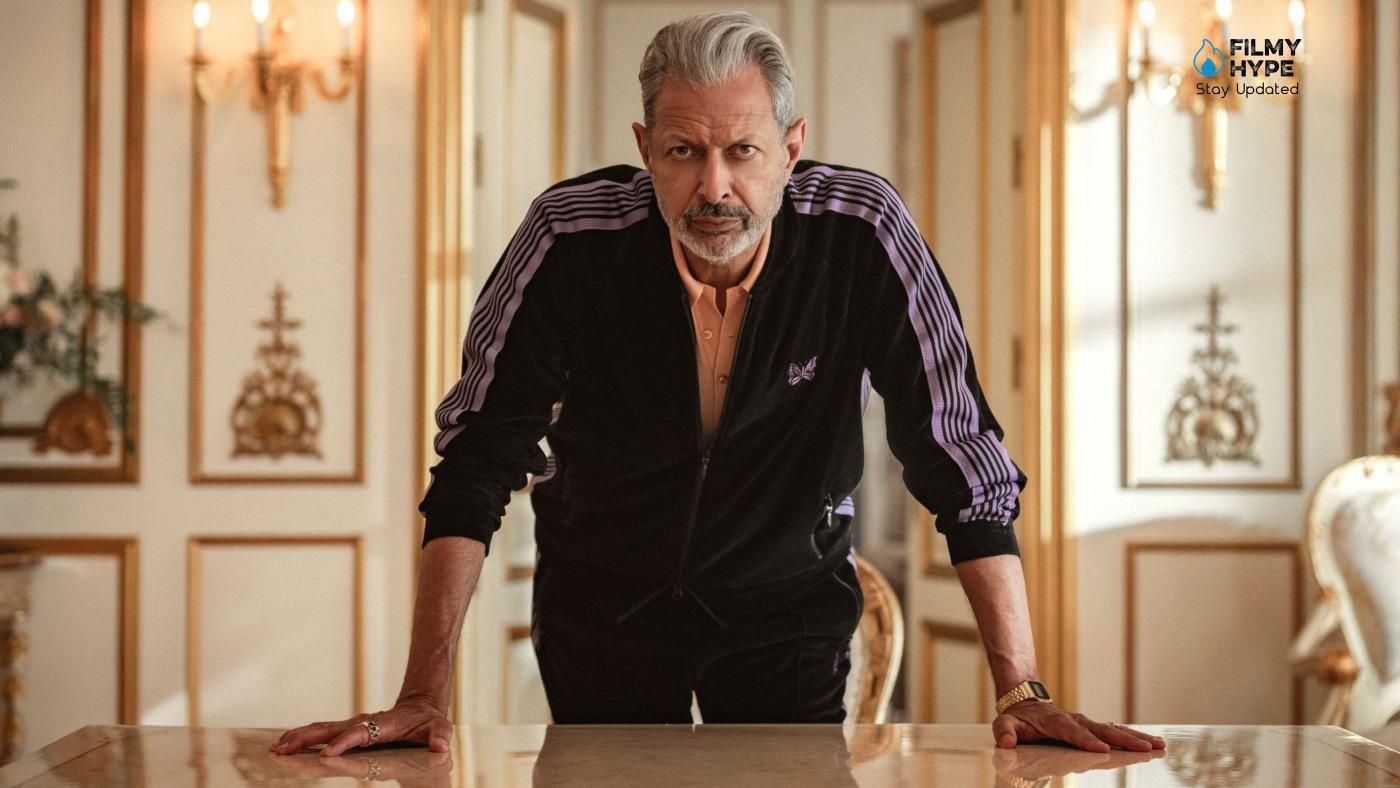
The series also talks about dysfunctional families – the gods are the perfect representation of this concept – and about power, the desire to have it at all costs, and the abuse that is often made once obtained. Ancient Greece had already returned to TV with Percy Jackson on Disney, but on a childish level, while here in Kaos it is a much more adult and mature product. One of the series not to be missed in 2024 and the demonstration that the platform can still provide excellent products after The Diplomat, is perhaps the closest example of superfine writing, excellent characterization of the characters, and excellent acting of the interpreters. Kaos proves to be a series that manages to entertain and make you think, bringing Greek myths into a modern context with intelligence and originality. Thanks to a compelling narrative, well-developed characters, and a perfect mix of humor and drama, the series leaves a lasting impression. With its ability to combine classic elements with current themes, Kaos confirms itself as a unique and significant work, demonstrating once again Charlie Covell’s talent in telling stories that touch both the heart and the mind.
Kaos Series Review: The Last Words
Kaos offers a contemporary reinterpretation of Greek mythology that is extremely pungent, with a stellar cast and a highly engaging script. Charlie Covell amazes everyone once again with his writing and after The End of the F***ing World he returns to Netflix with another rewrite, this time original, and that takes inspiration from Ancient Greece to transfer it to the present day. We promote Kaos, the new highly anticipated series with Jeff Goldblum for the successful mix of genres and tones, and for having been able to modernize ancient material, talking about our relationship as human beings with politics, power, and religion. Kaos is a series that creatively reinvents Greek mythology, offering an engaging narrative and memorable characters. Thanks to Charlie Covell’s vision, the series manages to entertain and make you think, proving to be a unique and fascinating work.
Cast: Sebastian Croft, Charithra Chandran, Tanner Buchanan, Kunal Nayyar, Nick Frost, Guz Khan, Lucy Punch, Daisy Jelley
Created By: Charlie Covell
Streaming Platform: Netflix
Filmyhype.com Ratings: 4/5 (four stars)




